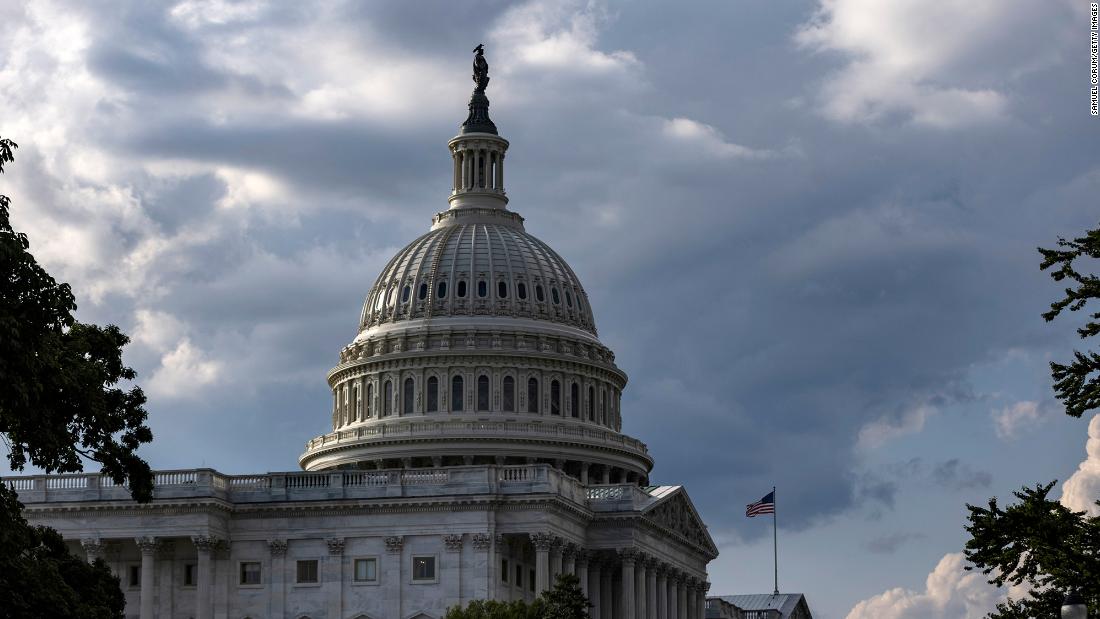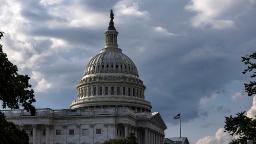But a weekend of talks had yet to produce an agreement as of late Sunday, while major sticking points remained, per three sources familiar with the matter.
Democratic negotiators, including the White House, sent Republicans on Sunday night a “global offer to finish every major open item,” a Democratic source close to the talks told CNN.
The offer included the major unresolved issues, including funding for highways and bridges, money for water systems, prevailing wage laws, using unspent Covid-19 money as a way to finance the bill as well as an infrastructure bank, and transit funding.
The 10 main negotiators are planning to meet Monday to put deliberations back on track. It remains to be seen if the GOP will come back with a counteroffer.
Here’s where things stand on Capitol Hill:
Sticking points loom large
Additionally, senators and the White House are at odds over $12 billion worth of broadband provisions, one of the sources familiar with the matter told CNN. And the cost estimates back from the Congressional Budget Office suggest the bill isn’t fully paid for as had been initially projected — forcing negotiators to scramble to make up for the funding shortfall, the source added.
The tenuous position comes after key members were expected to confer with relevant committees on Sunday in an effort to iron out last-minute sticking points and ensure that key chairs feel brought into the fold. This was considered a significant step given the fact that some chairs and ranking members, like Sen. Tom Carper, a Delaware Democrat, have balked at pieces of the bipartisan proposal.
Carper had said last week that he had serious concerns that pieces of his water bill were not fully funded in the bipartisan framework.
In a sign of how closely the White House has been monitoring progress, President Joe Biden was expected to make several calls to lawmakers on Sunday as negotiators attempted to finalize the deal, an administration official told CNN. Biden had been kept apprised by staff of the work on the outstanding issues while in Wilmington, Delaware, for the weekend. He returned to Washington Sunday earlier than originally scheduled.
A group of 22 Democratic and Republican senators said afterward that they were “close to a final agreement” and were “optimistic that we will finalize, and be prepared to advance, this historic bipartisan proposal to strengthen America’s infrastructure and create good-paying jobs in the coming days.”
But the days since have brought more scrutiny from lawmakers outside the group of negotiators, including Pennsylvania Sen. Pat Toomey, who warned Sunday against treating federal funding as “Monopoly money.”
“Now we’re talking about another $600 billion on top of the ordinary spending. … This is completely out of hand. There are people who think this is Monopoly money, but it’s not, Jake. And so I’m concerned. I think the way we should pay for this increase in infrastructure spending is by re-purposing money we already approved, but hasn’t yet gone out the door.”
Lawmakers insist a bill is within reach
Despite the plodding negotiations, lawmakers from both parties signaled Sunday that a deal is close at hand.
“I feel good about getting it done this week,” the Ohio Republican said.
“We’re in the final strokes, we’re in the final days. We’re optimistic, we are all engaging daily, multiple times a day with members of the Senate, and we’re feeling really good about it,” she said.
The Democratic bill, which they hope to pass through a budget process known a reconciliation, is expected to set the stage for Democrats to pass measures like expanding the child tax credit, offering paid medical and family leave and potentially even overhauling the country’s immigration system. The bill is also expected to include changes to the US tax code.
“So I’m enthusiastic about the fact that they will have a bipartisan bill. I hope that it will be soon. But yes, I stand by, because the fact is, is that the President has said that he wants to have a bipartisan bill, and we all do,” she continued. “But that is not the limitation of the vision of the President. He wants to build back better. He wants to do so in a way that, again, involves many more people in the prosperity of our country.”
CNN’s Manu Raju, Katie Lobosco and Tami Luhby contributed to this report.





More News
How a Novelist Became a Pop Star
Nicki Minaj Apologizes for Postponed Show After Video Appears to Show Arrest
Perspective | Feds tell agencies to support domestic violence victims seeking time off